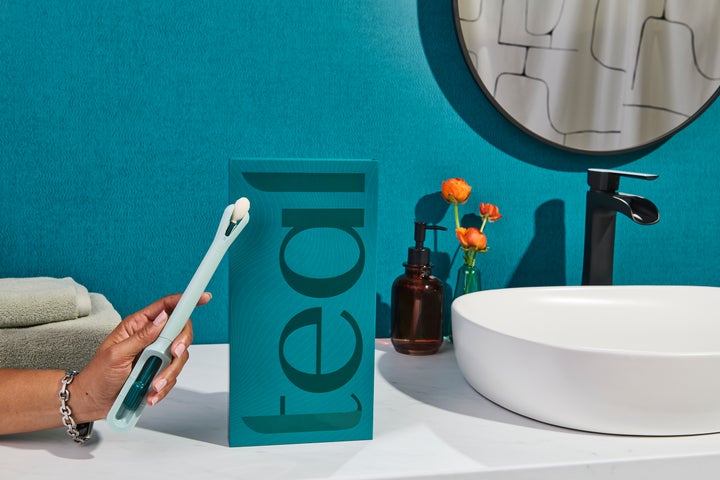🔴 Website 👉 https://u-s-news.com/
Telegram 👉 https://t.me/usnewscom_channel
The Food and Drug Administration has approved the nation’s first at-home cervical cancer test, offering women a more accessible and less invasive alternative to traditional Pap smears, its maker announced Friday.
The approved self-administering test by Teal Health allows women to swab the inside of their vagina for screening with a wand that’s described as the width of a standard tampon applicator.
Rather than scraping deeper into the cervix for a cell sample, as is done during a typical Pap smear using a speculum in a doctor’s office, a sponge located at the end of the so-called Teal Wand collects the cells that can then be sent away to a certified lab for testing.
Teal Health/Nicole Morrison
If the results come back abnormal, Teal Health providers will reach out to request a virtual follow-up visit with a Teal provider to discuss the results and offer steps to take next, the company said.
Similar tests were approved last year but for use in medical offices.
Clinical trials using 600 participants found that the wand detects cervical precancer 96% of the time, which is the same as clinician-collected samples, the company said.
Of those participants, 99% reported no difficulty using the device and 98% of the samples collected were determined to be valid for analysis, “demonstrating strong patient understanding and capability to perform the self-collection,” the company said while announcing the trials’ findings in March.

Peter Dazeley via Getty Images
It’s recommended that anyone with a cervix between the ages of 21 and 65 receive a Pap smear every few years to screen for abnormal cervical cell changes, such as the human papillomavirus (HPV), which can turn into cancer. Detecting precancerous or cancerous cells as soon as possible increases the chances of beating the disease, though some women may have difficulty finding, attending or traveling to an appointment to get such tests done.
“You have to logically believe that would increase access if people’s main barrier was getting to a medical setting,” Dr. George Sawaya, a gynecologist at UCSF Health, told NBC News of women’s expanded access with at-home testing.
A recent study published in JAMA found an increased rate of cervical cancer incidents and deaths among women living in rural areas, particularly minoritized populations, where health care shortages have contributed to fewer cancer screenings and care. The rate of incidence was 25% higher than urban areas and mortality was 42% higher, according to the study.
Teal Health said its wands will soon be available in California and then gradually expand to additional states. The company has not yet released a price for the test, though it has said that it is working with major insurance providers and plans to have “flexible payment options.”

